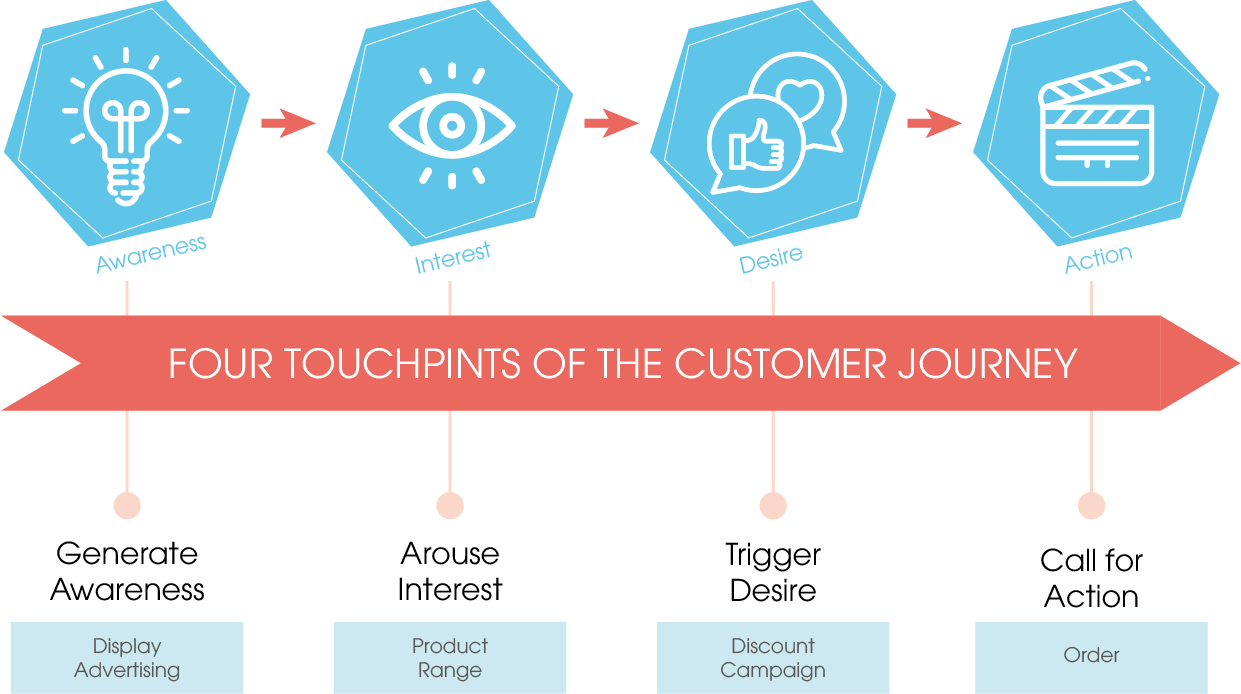Social proof describes a psychological principle: people orient themselves towards the behaviour of others in order to make decisions in uncertain situations. Find out how you can use this for your company here. ... Continue reading


The AIDA model was developed as early as 1898 by Elmo Lewis and shows four stages that a consumer goes through before he actually buys a product or uses a service. AIDA is an acronym and is made up of the following four terms:

The phases thus represent the touchpoints that a customer passes through on his customer journey. You can also divide the advertising impact of your measures into individual steps. The model helps you to optimize your sales process. It can be used for both marketing and PR measures.
This first step is often referred to as Attention. The goal is to attract attention and have the first touchpoint with the (potential) customer. It serves as an “eye-catcher”, so to speak. You can achieve this, for example, through display advertising or an exciting YouTube ad.
After you have the attention, you should arouse interest in a product or service. You can do this, for example, by presenting the product range. Show the customer details or the USPs of an article or service, e.g. via product descriptions.
The attention and interest is there – you almost have the cat in the bag! Now it is important to trigger the desire. That means: Make sure that the desire for the product or service is firmly anchored in the subconscious. Maybe all that’s really missing is a tip of the scales to go from prospect to buyer. Through advertising, special discount promotions or an approach to the customer that exactly fulfills his wishes, you can create a desire to buy.
You have done it! You have persuaded the potential customer to buy. The desire to buy has become an actual purchase. Through the conversion or order, you have received the desired action. Call-to-actions are often helpful to give the potential customer that last little push in the right direction.

The model exclusively reflects a successful sales process. It has a linear structure and does not show any external influences that can interrupt this process. Also the emotions or social background of the customer are completely disregarded. However, outside of the model world, all of this naturally has an influence on the sales process and the purchase decision.
You want to learn more about exciting topics?